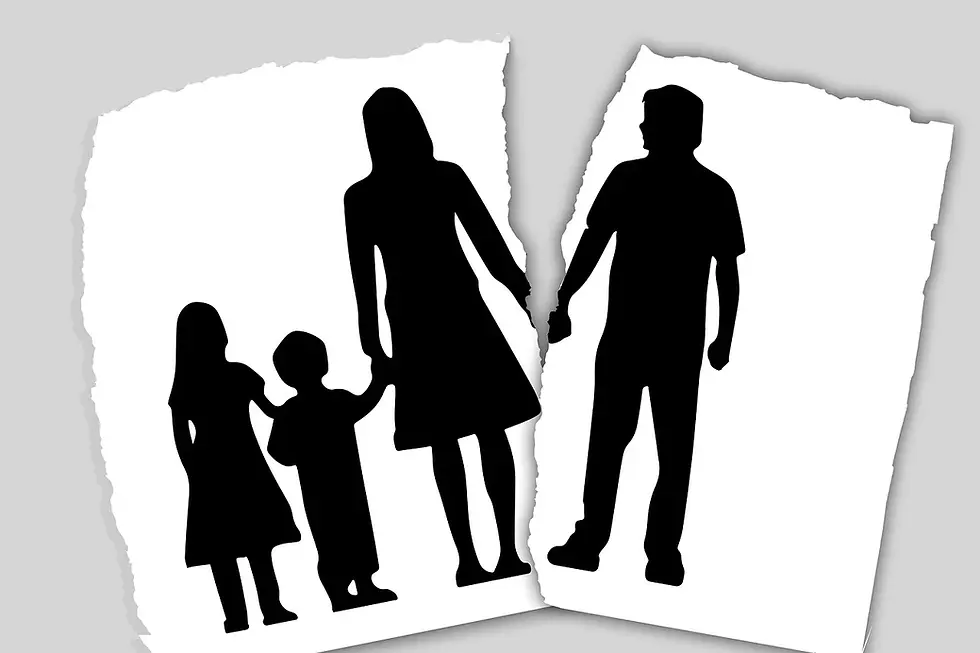The Impact of Parental Separation on Children: Supporting Emotional Well-Being
- Dr Arati Bh
- May 8
- 2 min read

Parental separation is a deeply emotional experience—not only for the couple involved but especially for the children. Even when handled peacefully, a breakup disrupts a child’s sense of stability, security, and belonging. Children often internalize the change, blame themselves, or struggle silently with confusion, fear, and sadness. Understanding how separation impacts children and taking proactive steps to support them emotionally is essential for their long-term mental well-being.
At SereinMind, Dr. Arati Bhatt, a compassionate counselling psychologist in Gurgaon, provides professional guidance to help children and parents cope with emotional transitions in a healthy, supportive way.
Common Emotional Reactions in Children
Children react differently to separation depending on their age, temperament, and the level of parental conflict. However, common signs include:
Anxiety or clinginess
Irritability or behavioral outbursts
Withdrawal from friends or activities
Drop in school performance
Sleep disturbances or nightmares
Feelings of guilt or self-blame
Young children may not fully understand what’s happening, while adolescents may internalise pain and rebel or shut down emotionally.
Long-Term Effects of Unresolved Emotional Stress
When emotional support is missing, children of separated parents may develop:
Attachment issues in future relationships
Low self-esteem or fear of abandonment
Trust issues and difficulty forming close bonds
Increased risk of anxiety or depression
Individual Therapy with Dr. Arati Bhatt helps children process emotions in a safe, non-judgmental space and build resilience.
How Parents Can Support Their Children During Separation
1. Maintain Open and Age-Appropriate Communication
Let your child know it’s okay to feel upset, and assure them that the separation is not their fault.
2. Avoid Putting the Child in the Middle
Never ask children to take sides or speak negatively about the other parent in front of them.
3. Provide Stability and Routine
Consistency in daily life helps reduce anxiety and builds a sense of security.
4. Validate Their Emotions
Listen without interrupting. Let them cry, ask questions, and express frustration.
5. Seek Professional Help if Needed
A psychologist can help your child navigate complex emotions and adjust to the changes with emotional strength.
Online Counselling is also available for children and teens who prefer private, flexible support from home.
Also read our blog on Family Therapy to understand how therapy can support the whole family system during a separation.
Separation Doesn’t Have to Break Your Child—Support Can Help Them Grow
With patience, love, and the right professional guidance, children can learn to adapt to family changes and emerge emotionally stronger. They don’t need perfection—they need presence, validation, and support.
👉 Book a session with Dr. Arati Bhatt at SereinMind to help your child process the impact of separation in a healthy and healing way.




Comments